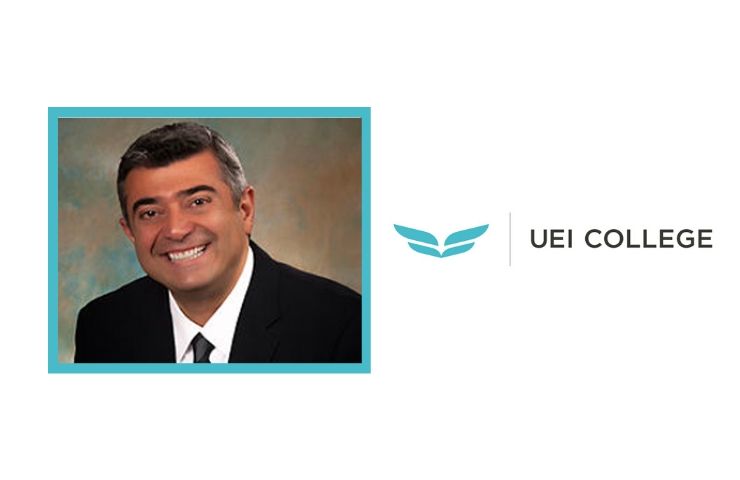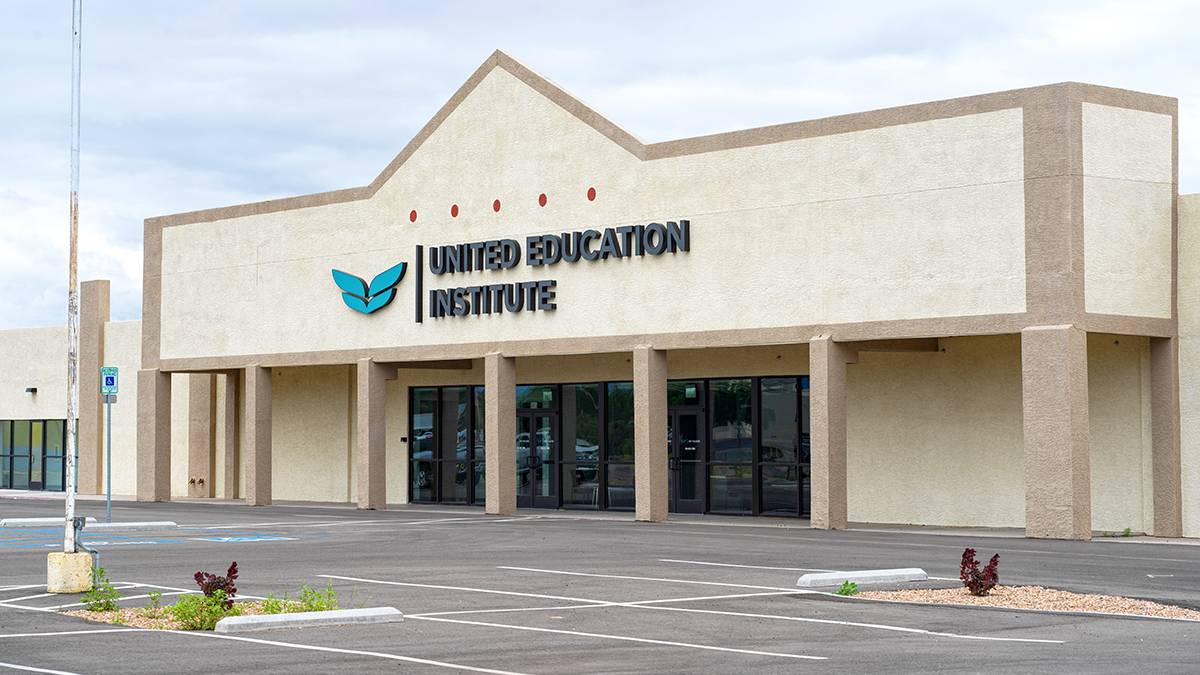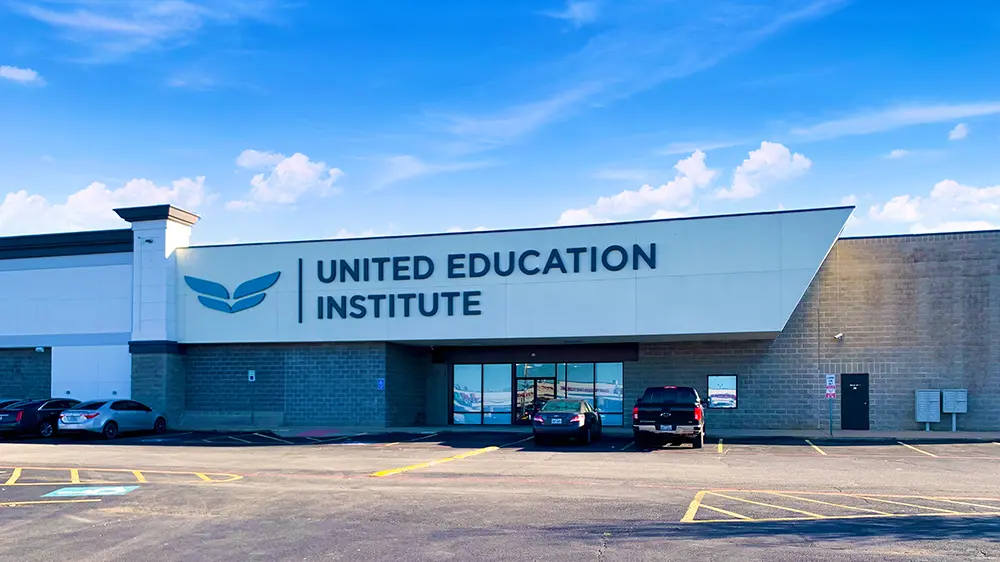
An Open Letter to Congress on Discrimination Against Under-represented Students
International Education Corporation Opposes the Proposed Federal Regulation on Gainful Employment
by Fardad Fateri
Shouldn’t the ethnically under-served and economically disadvantaged have access to college education? As the President and CEO of International Education Corporation, one of the largest postsecondary career education companies in the United States, headquartered in Irvine, California, I am writing to oppose the proposed federal regulation on Gainful Employment. Now having made this very direct statement, I will also submit that I believe this entire controversy has nothing to do with the US Department of Education and everything to do with the US Senate HELP committee’s zeal to destroy the future of the students we serve in proprietary postsecondary career education sector. I have worked with the US Department of Education for many years and I only have positive comments and experiences to report on the department’s intentions, motivations and focus. The US Department of Education is student-centered and they are always anchored in responsible public policy development. However, along with many other organizations, they have to manage the politically charged climate in Washington D.C., in this specific case, the US Senate HELP committee’s targeted agenda on proprietary postsecondary education.
I would like to take this opportunity to introduce and discuss the topics that must be central to this conversation and those focused on the population that are key to this entire matter: our STUDENTS. It seems that everyone is focused on all types of complicated criteria and formulas to quantify the value of an education without any regard to the impact on the student. Therefore, I will place all of my attention on students who matter most to us at IEC and arguably the entire proprietary postsecondary sector. At IEC, we work very hard to provide our students with the education and training necessary to obtain high demand jobs and compete in today’s competitive workforce. We take great pride in serving our students who come from low-income families and represent racial and ethnic groups that have historically been under-served within postsecondary education as well as the U.S. workforce. These students have been flocking to private for-profit institutions because we are the only ones who provide true access to postsecondary education. It is no secret that ethnic and racial diversity in traditional public and private non-profit universities is rare. In fact, the University of Iowa’s own website touts a paltry 2.4% African American/Black student demographic and a 2.8% Hispanic/Latino demographic. The University of Iowa also happens to be the largest university in Iowa, the home state of the US Senate HELP committee chairman, Senator Tom Harkin (D-Iowa) who has been fighting vigorously against our sector. We are privileged and honored to educate these individuals many of whom are the first in their families to have the opportunity to seek a postsecondary diploma. We are also pleased to be able to provide a meaningful contribution to society as well as to the federal government. A large percentage of our students are welfare recipients who would otherwise continue to leverage federal resources without the support and intervention of our schools. Plus we are building a generation of newly educated individuals who will support their family members to pursue a postsecondary education.
At IEC, we offer short term diploma programs in high demand verticals such as healthcare, technology, criminal justice and business. Our programs are current, timely and relevant and address the demands of employers who have needs for skilled entry level workers. We serve a group of students who have historically been avoided and ignored by traditional postsecondary education, a population of under-represented and under-served individuals most of whom are African-American and of Hispanic/Latin origins. Our students do not have other alternatives except to remain on welfare, be on unemployment or join the military. The private non-profit colleges and universities are not and have never been interested in the students we serve mostly because our students do not come from families with middle to high household incomes and they will never build their rich endowments nor will they contribute to alumni organizations that make up to 10% of the annual expenses of the non-profit universities. Public institutions who speak frequently about student access and serving under represented communities do not serve our students because of limited space and limited state subsidies. Instead, they grant access to those with superior secondary school grade point averages and high scores on national standardized tests like the SAT or the ACT.
Our company and the entire proprietary postsecondary sector exist because of an incredible need for career education. We are filling a huge void in postsecondary education in the United States. So, all the pundits on the US Senate’s HELP committee must understand that the growth of our sector is not due to our genius in marketing methodology or unconventional recruitment tactics. Please don’t give us that much credit. Credit should be given to non-profit universities that have been able to convince students and their sophisticated parents to pay approximately $400,000.00 for an undergraduate degree that will seldom lead to an academically-related career.
Our students are smart, ambitious, industrious, and resourceful and they care deeply about their future. Our students want to change their lives so the pundits on the US Senate’s HELP committee’s claim that our students are naïve and are easily abused is offensive and quite disrespectful. An individual’s household income and ethnicity should not be grounds for unfounded and unfair assumptions about their aptitude, judgments and ability. Traditional postsecondary organizations that are deeply rooted in tradition, high academic expectations in the admissions process as well as high tuition rates prevent access for the hundreds of thousands of African Americans and those of Hispanic/Latin origins as well as those who are economically disadvantaged. Ironically, the very individuals who speak about equal access for all and the very people who have designed the perception of racial and ethnic equality are now supporting a proposed regulation that directly discriminates against those whom they have claimed to support. Are we ready as a country to relegate our students to a permanent uneducated status? Clearly, having equal access to federal funding does not ensure equal access to post-secondary education. Without our sector, our students would not have access to post-secondary education.
Those who know me very well know that I am and have always been extremely supportive of regulation, compliance and oversight and I care deeply about quality, integrity and student success. With that said, since we represent institutions of postsecondary education, shouldn’t our focus be on the quality of education demonstrated through student retention, completion and employment rates instead of the structure of funding? Arguably, the national accreditors that provide oversight for many colleges in our sector, including ours, have the strictest standards for quality in education and integrity with direct measures assessing student success as illustrated by graduation and employment rates of the students. The traditional universities have consistently fought the importance of measuring students’ graduation and employment rates, yet our sector operates daily and has embraced these standards as measures of student success. It is unfair to compare our funding outcomes with institutions such as Harvard that are predominantly populated by the wealthiest Americans and non-Americans. Instead, our students represent the lowest socio-economic tier in the United States. And, to be blunt, may I ask, what is the correlation between funding architecture and educational quality? If the repayment of borrowed loans by students is an issue, please take into consideration the cumulative effect that funding will have on the lives of millions who will remain on welfare. If wasting taxpayers’ money is an issue, please consider the millions of dollars our sector pays in taxes annually. And, of course, as we all know non-profit universities and public postsecondary institutions have the privilege of being tax-exempt. If there is a prevailing thesis that the career education sector abuses federal funds, please consider the billions of federal and state dollars that goes into the construction of the state of the art buildings at public universities that have absolutely no impact on quality and student learning. If the career education sector also ignores the very population that needs education the most and to build the educated country President Obama so eloquently articulates in his many speeches on education, how can we as a nation gain ground in promoting education for all Americans and become #1 in the world in degrees attained?
Furthermore, when discussing issues of funding, let’s remember that public colleges and universities as well as private non-profit schools have access to funding and subsidies to which our sector does not have access. And as a taxpayer, I am frequently amazed at how our hard earned money funds all these public institutions that are not held accountable for student success nor do they employ direct measures demonstrating quality in education and/or integrity. The waste in public postsecondary education is atrocious. In fact, if you add up the funding we all get, for-profit and non-profit, through state and federal programs, it would be easy to conclude that the proprietary postsecondary career education sector offers the best value while being most accountable for student success and it is held to the highest standards of quality versus its peers in the public and private non-profit sector that spend dramatically more and are not held accountable for student success.
I ask our legislators not to blame us for addressing a need in society and for serving the common good. I ask the US Senate HELP committee not to use the tax status of the organizations in the career education sector and the subject of funding to delineate us from our peers in the non-profit sector, as I strongly hold this to be an inferior approach to formulating public policy. I am convinced that the most responsible methodology to assess the viability and value of any postsecondary institution is to integrate direct measures to assess quality and integrity. I am sure the faculty and staff unions who run traditional colleges and universities and who also support this Gainful Employment proposal as well as the ranking chair of the US Senate HELP committee will never accept to be accountable for direct measures of quality such as student retention, graduation and employment. But, if we live in a country deeply rooted in justice, equality and fair treatment of all individuals, we should create an even playing field for all postsecondary institutions; that is indeed the most responsible approach.
Lastly, I want to underscore and fully support the importance of regulatory oversight for all postsecondary institutions, from market funded entities to public institutions. But, I ask that we take a thoughtful and holistic approach for all and at the risk of sounding incredibly naive, we must put the student and NOT politics at the core of our conversation and align our thoughts and actions around what is best for the student. Ultimately, if we care most about the hundreds of thousands of students that our sector serves, we should focus on them and not create public policy that completely ignores them. Our students deserve better.
I believe we need further dialogue and a better understanding of the needs of our students and the demands of thousands of employers who employ our graduates. I think the two most important parts of the conversation around this entire matter are 1) our students and 2) our employers, who have been undermined and set aside as irrelevant throughout this process. I invite the legislators most determined to take swift action on this issue to carefully evaluate the overwhelming empirical evidence that supports the positive contributions of the postsecondary career education sector at large and not the anecdotal observations of those who have much to gain by destroying our sector. I also ask legislators to consider the long term implications of their decision-making assumptions, as I believe the long term impact will be both dramatic and devastating. Eliminating hundreds of thousands of jobs and limiting access to millions of potential students is a serious issue that must not be taken lightly. We are proud of the students we serve and I applaud the passion and vigor of our employees and faculty members who work tirelessly to change our students’ lives. Please consider our request for dialogue and understanding so we can work collectively to serve the needs of our students.
Regards,
Fardad Fateri, Ph.D.
President and Chief Executive Officer
International Education Corporation
[email protected]
About Dr. Fardad Fateri
Dr. Fardad Fateri is the President and Chief Executive Officer of International Education Corporation, headquartered in Irvine, California. He has served as a professor, staff member, administrator, executive and senior executive in non-profit higher education and proprietary career education for most of his adult life. Dr. Fateri completed his postsecondary education and training at the University of California, California State University, Alliant International University and Harvard University.
For more information about International Education Corporation, please visit www.iecglobal.com.





